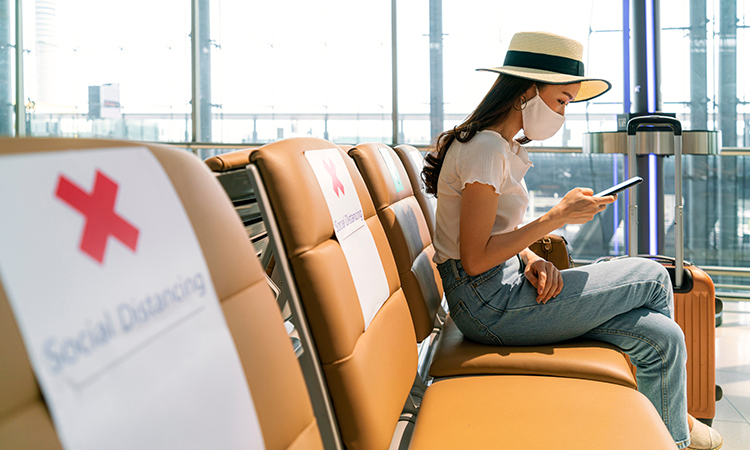ACI World extends its Airport Health Accreditation programme
Posted: 14 June 2021 | International Airport Review | No comments yet
As the original accreditation is granted for only 12 months, ACI has extended its Airport Health Accreditation programme so that airports can be re-accredited for an additional 12 months.


Airports Council International (ACI) World has announced that it has extended its Airport Health Accreditation (ACA) programme, which assists airports in demonstrating to passengers, regulators and governments that they are prioritising health and safety in a measurable, established manner.
The programme is supported by the International Civil Aviation Organization (ICAO) and, since it was launched in July 2020, more than 600 airports of all sizes have signed up to the programme. Accreditation is granted for 12 months and, as the first airports were accredited in August 2020, ACI has opened the programme for airports to be re-accredited for another 12 months.
The AHA programme has been updated in 2021 and remains aligned with the latest ICAO Council Aviation Recovery Task Force (CART) Recommendations – and with the ACI Europe Guidelines for a Healthy Passenger Experience, which, in turn, are aligned with the European Union Aviation Safety Agency (EASA)/ European Centre for Disease Prevention and Control (ECDC) Aviation Health Safety Protocol – and industry best practices. The guidelines are also aligned with ACI’s own updated Aviation Business Restart and Recovery publication.
Join us live: Shaping the Next Generation of Hold Baggage and Air Cargo Screening
Join us live for an insightful webinar on 11th December at 14:00 GMT, in collaboration with Smiths Detection, as we explore the strategic balance of operational efficiency, regulatory compliance, and sustainability in high-volume security environments.
This session offers a focused look into future-proofing your security strategy.
Key learning points
- Cost Reduction: Strategies to minimize bag travel time while simultaneously reducing operational costs.
- Regulatory Roadmap: Insights into the next wave of regulatory changes and their impact on future investment decisions.
- Sustainable Systems: Practical approaches to building sustainability into security systems and lowering the total cost of ownership (TCO).
- Scalable Solutions: Real-world examples of scalable systems supporting current airport growth and preparing for tomorrow.
Register now for expert insights, case studies, and actionable strategies on operational efficiency!
“ACI’s Airport Health Accreditation programme continues to provide invaluable support to airports around the world, enabling them to validate their own measures throughout their facilities and processes and reassure the travelling public,” said ACI World’s Director General, Luis Felipe de Oliveira. “The re-establishment of air travel will be a key driver for a global economic recovery but, to succeed, passengers must have confidence in the industry’s focus on health and welfare.”
“The Airport Health Accreditation programme has the support of ICAO and fosters this crucial passenger confidence through the harmonisation of health measures that have been introduced around the world, and small, medium and large airports around the world have signed up,” he added.
All passenger areas and processes are assessed through the programme, including terminal access; check-in areas; security screening; boarding gates; lounges; retail; food and beverages; gate equipment, such as boarding bridges, escalators and elevators; border control areas and facilities (in collaboration with authorities); baggage claim areas; and arrivals exits.
Processes assessed include cleaning and disinfection, physical distancing, staff protection, physical layout, passenger communications and passenger facilities.
Stay Connected with International Airport Review — Subscribe for Free!
Get exclusive access to the latest airport and aviation industry insights from International Airport Review — tailored to your interests.
✅ Expert-Led Webinars – Gain insights from global aviation leaders
✅ Weekly News & Reports – Airport innovation, thought leadership, and industry trends
✅ Exclusive Industry Insights – Discover cutting-edge technologies shaping the future of air travel
✅ International Airport Summit – Join our flagship event to network with industry leaders and explore the latest advancements
Choose the updates that matter most to you.
Sign up now to stay informed, inspired, and connected — all for free!
Thank you for being part of our aviation community. Let’s keep shaping the future of airports together!
Related topics
Airport crisis management, Airside operations, COVID-19, Passenger experience and seamless travel, Safety, Terminal operations
Related organisations
Airports Council International (ACI World), Airports Council International Europe (ACI Europe), European Centre for Disease Prevention and Control (ECDC), European Union Aviation Safety Agency (EASA), International Civil Aviation Organization (ICAO)


















